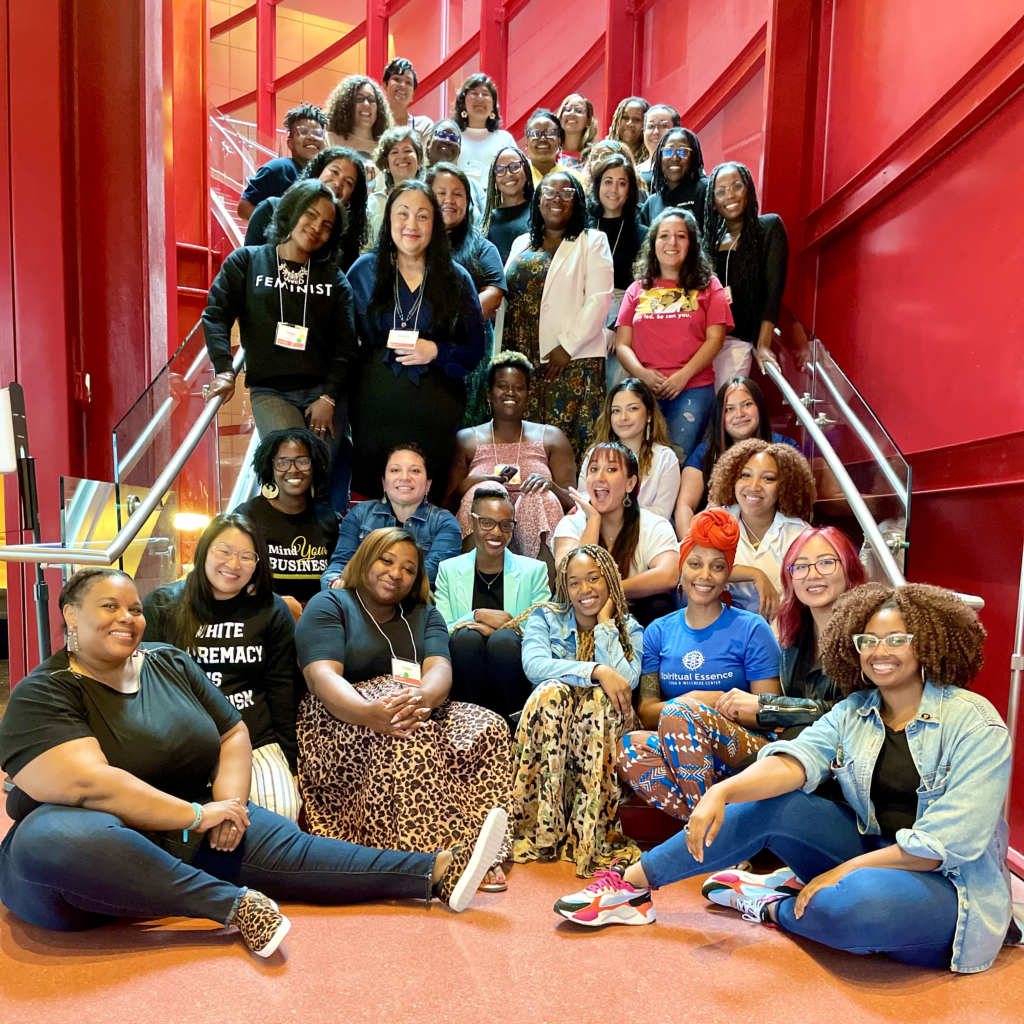This month as I celebrate my 5-year anniversary as the Executive Director of re:power, I’m reflecting on what I’ve learned leading a national movement building organization. When I joined re:power, it was not only a first for the organization to have a Black woman leader, but also a first for me—my first time becoming an Executive Director. I did a lot in those first two years to learn from my peers and mentors, stretch myself to grow, and find balance in this work.
Here are just five of my reflections that I hope will encourage others, especially my fellow women of color, stepping into their leadership.
1. Ground Through Purpose During Times of Crisis
When I stepped into the Executive Director role with re:power in 2019, it was a significant milestone for me and I was ready to embrace my leadership. Just as we began to reimagine our potential, the compounded trauma of 2020 hit, testing our resilience. Leading an organization through a pandemic while grappling with the personal and collective trauma of systemic racism was daunting, but we pivoted quickly to train over 2000 organizers online and form transformational partnerships with multiple foundations in that year alone. The mission of re:power and my purpose were crystallized during the pandemic, as the challenges underscored the critical need for unlocking the agency of historically oppressed communities and fostering adaptive leadership.
2. To Push Funders, Push Through Fear
Despite initial insecurities about fundraising, I led re:power to grow from a $3.1 million to a $6 million annual budget and rebuilt our reserve accounts. I challenged philanthropy and our movement to go beyond mere anti-racism rhetoric and put it into practice. This purpose became the driving force behind our actions as an organization. I learned that sharing a clear vision with funders and conveying the necessity of investing in re:power garnered their belief and support.
3. Make an Inclusive Staff Culture Your “BAE”
Strategy is no good without a strong culture. My fellow senior leaders of color, and I, transformed a burnt-out staff with eroded trust into a values-grounded team. We addressed behaviors, policies, and practices misaligned with our vision, fostering a culture where staff, especially those most marginalized, could be their authentic selves with mutual accountability to our shared values. One staff member noted how my unapologetic leadership as a mother inspired them to reconsider their fears about parenthood. We grew from 11 staff members in 2020 and will soon be 25 by the end of this year. We continue to achieve our best work ever due to our strong staff culture. This internal work is essential to an organization’s success. Staff culture can’t be an afterthought, it must be BAE – before anything else.
4. Innovate How to Approach Strategic Visioning
The excessive focus on organizations having a strategic plan is a symptom of the non-profit industrial complex. Leaders must make highly strategic decisions to propel their organizations forward, even without a formal plan. For instance, the support and intentionality I aspired to create for women of color at re:power led to the development of new programming like the Women of Color Leadership Cohort, which supports 30-35 leaders annually across two cohorts. That’s why, for our strategic planning process to be more than a box we checked, it was essential to create an engaging process that involved our staff and board in creating a new strategic vision and brand identity. Our strategic planning process provided us with exceptional clarity, and thanks to our innovative approach and brilliant team, we ensured continuous progress and alignment.
5. Strive for Your Successor to Lead in Abundance
I am committed to building an organization where the next re:power leader of color will inherit an organization built on strength and purpose, allowing them to lead with abundance rather than focus on mere survival. To do this, I equip, mentor, and coach my executive team—entirely women of color—to be fully prepared to step into my role when the time comes. While many talk about building a strong team, few truly invest in preparing their successors for leadership. Too often, leaders cling to power instead of fostering the growth of those around them. I take the opposite approach. I prioritize succession planning with a high level of intentionality, focusing on developing leaders within my organization to ensure sustained success and impact. Our movement’s future depends on embracing this approach wholeheartedly.
